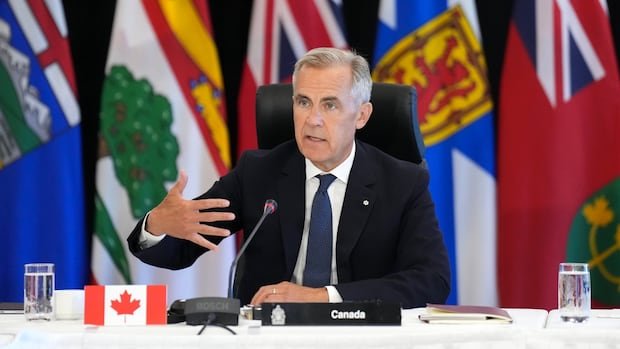Prime Minister Mark Carney of Canada expressed uncertainty about the country’s ability to finalize a trade agreement with the United States by the looming Aug. 1 deadline. Carney emphasized that Canada would only agree to a deal that is truly beneficial, stating, “The Government of Canada will not settle for a subpar deal.” He reiterated that the objective is to secure an agreement that serves the best interests of Canadians.
Carney acknowledged the ongoing complexity of negotiations and indicated a willingness to reassess options if a favorable deal for Canada cannot be reached. These statements were made following discussions with Canada’s premiers at a meeting in Ontario’s Huntsville. The meeting aimed to address the impact of the trade dispute initiated by U.S. President Donald Trump.
Various provincial leaders shared their perspectives on the negotiations. Nova Scotia Premier Tim Houston emphasized the importance of securing the best deal for Canada, regardless of the deadline. Quebec Premier François Legault expressed uncertainty about the likelihood of a trade agreement by Aug. 1, highlighting the challenge of understanding the U.S. administration’s intentions.
Ontario Premier Doug Ford, while optimistic about the possibility of a deal, stressed the importance of strengthening Canada’s economy rather than being solely reactive to U.S. actions. Similarly, New Brunswick Premier Susan Holt emphasized the significance of prioritizing a good deal over a swift resolution.
Carney outlined Canada’s economic response to the tariffs imposed by the U.S., focusing on supporting affected industries and promoting economic growth through internal trade reforms and project approvals. He also announced the opening of a federal projects office to streamline the approval process for major national projects.
In a separate development, Ford, Saskatchewan Premier Scott Moe, and Alberta Premier Danielle Smith signed a memorandum of understanding to collaborate on energy and trade infrastructure projects. The premiers discussed the need for energy security, with concerns raised about potential overreliance on foreign energy sources.
Overall, the premiers underscored the importance of securing a favorable trade deal with the U.S. while also prioritizing Canada’s economic interests and energy security.


